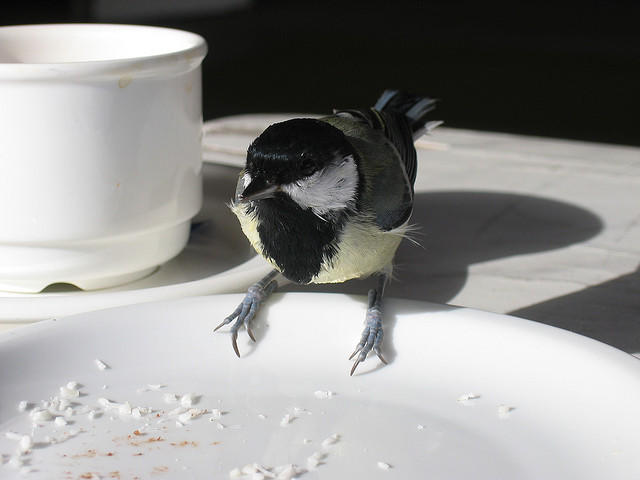Latest News and Updates from Audubon in California
California Condor. Photo: Scott Frier/USFWS
The Los Angeles Times editorial board today comes out strong against a push by House leaders to include "drought response" language in the omnibus spending bill. This language is much less about addressing the problems of the drought than is about dismantling environmental protections, diverting water from the Central Valley wildlife refuges, and halting the restoration of the San Joaquin River. We're asking people to send an email to their leaders opposing this horrible plan.
Now's the time to vote for 2015 Bird of the Year. The American Avocet is one of seven birds nominated for 2015 Bird of the Year. But if you've got a favorite, feel free to write in your own choice. You can vote as many times as you like through Dec. 20.

Don't get mad the next time a gull tries to steal your french fry, they're just following tradition. Paul Haemig, a Swedish animal ecologist visited 80 cafes and restaurants and recorded bird behavior. From a New Scientist article:
Haemig thinks that foraging where humans are present is a behaviour that evolved several times. And he believes that, in the principal clade to which these birds belong, the behaviour evolved earlier than humans did – because the species in this clade separated genetically before humans emerged.
“Their ancestors hung out around our ancestors,” he says. “It looks suspiciously like a very old association.”
He points to nearly 60 known foraging relationships between birds and other creatures, from army ants to aardvarks and whales to warthogs. So just as, on a frosty morning, a robin swoops for worms turned over by a gardener’s fork or, in the Congo marshes, birds pick up frogs flushed out by gorillas, the savvy birds of urbanised areas are foraging for mozzarella panini and chips at your table...
Restaurants may even have a role in conservation, Haemig says. In rural restaurants, the three predominant species he saw were declining in numbers in the countryside: house sparrows, white wagtails and Eurasian tree sparrows. This suggests that rural restaurants could become part of the plan for conserving them.
Read the entire piece here.
Great opinion piece in today's Sacramento Bee from our colleagues at Defenders of Wildlife arguing that the drought should not be used as an opportunity to gut environmental protections.
"Other legislators, however, have tried to capitalize on the drought to grab more water for agribusinesses in the Central Valley, while undermining bedrock environmental laws. Rep. David Valadao’s Western Water and American Food Security Act is a prime example.
The bill from Valadao, R-Hanford, would override Endangered Species Act protections for imperiled native salmon runs, increasing the risk of extinctions among fish species that have suffered through four dry years. It could also cut back water to wildlife refuges so that some might receive barely a trickle and others nothing at all, even during times of critical need."
Story from NPR's All Things Considered.
Bernie Krause is an audio ecologist. This year he noticed a precipitous drop in the sounds of one his favorite field recording sites, a change he attributes in large part to California's drought.
Our newsletter is fun way to get our latest stories and important conservation updates from across the state.
Help secure the future for birds at risk from climate change, habitat loss and other threats. Your support will power our science, education, advocacy and on-the-ground conservation efforts.
Join the thousands of Californians that support the proposed Chuckwalla National Monument.